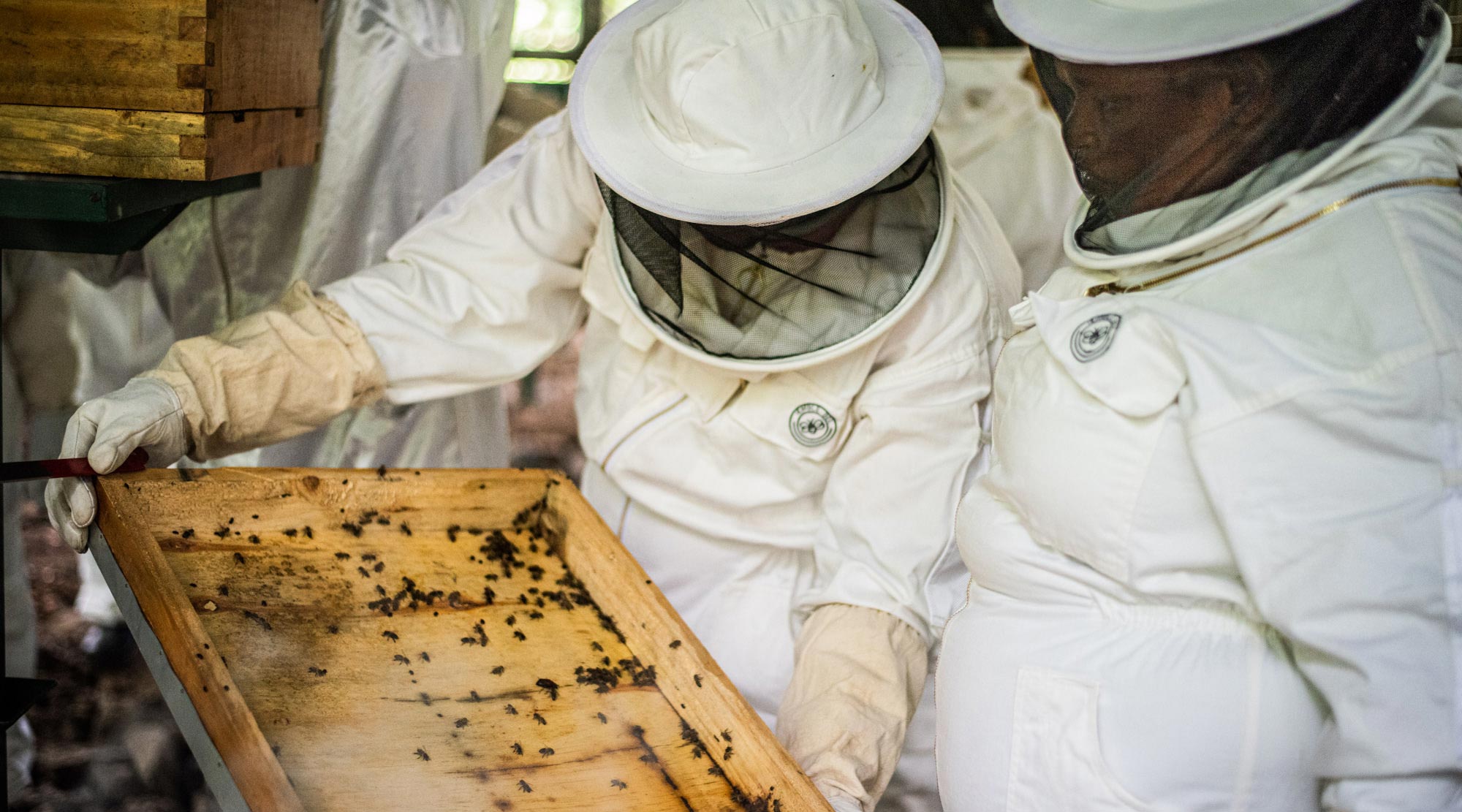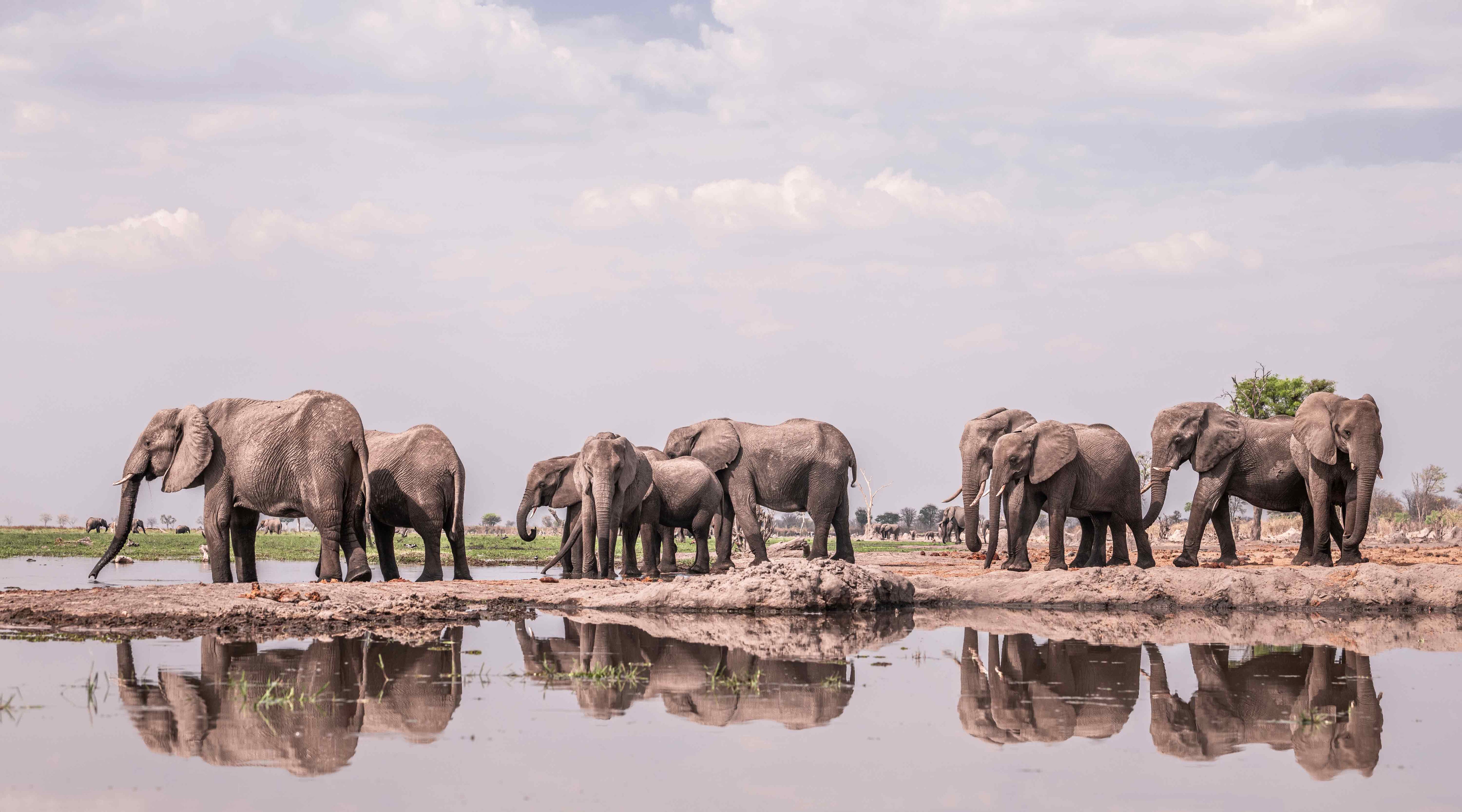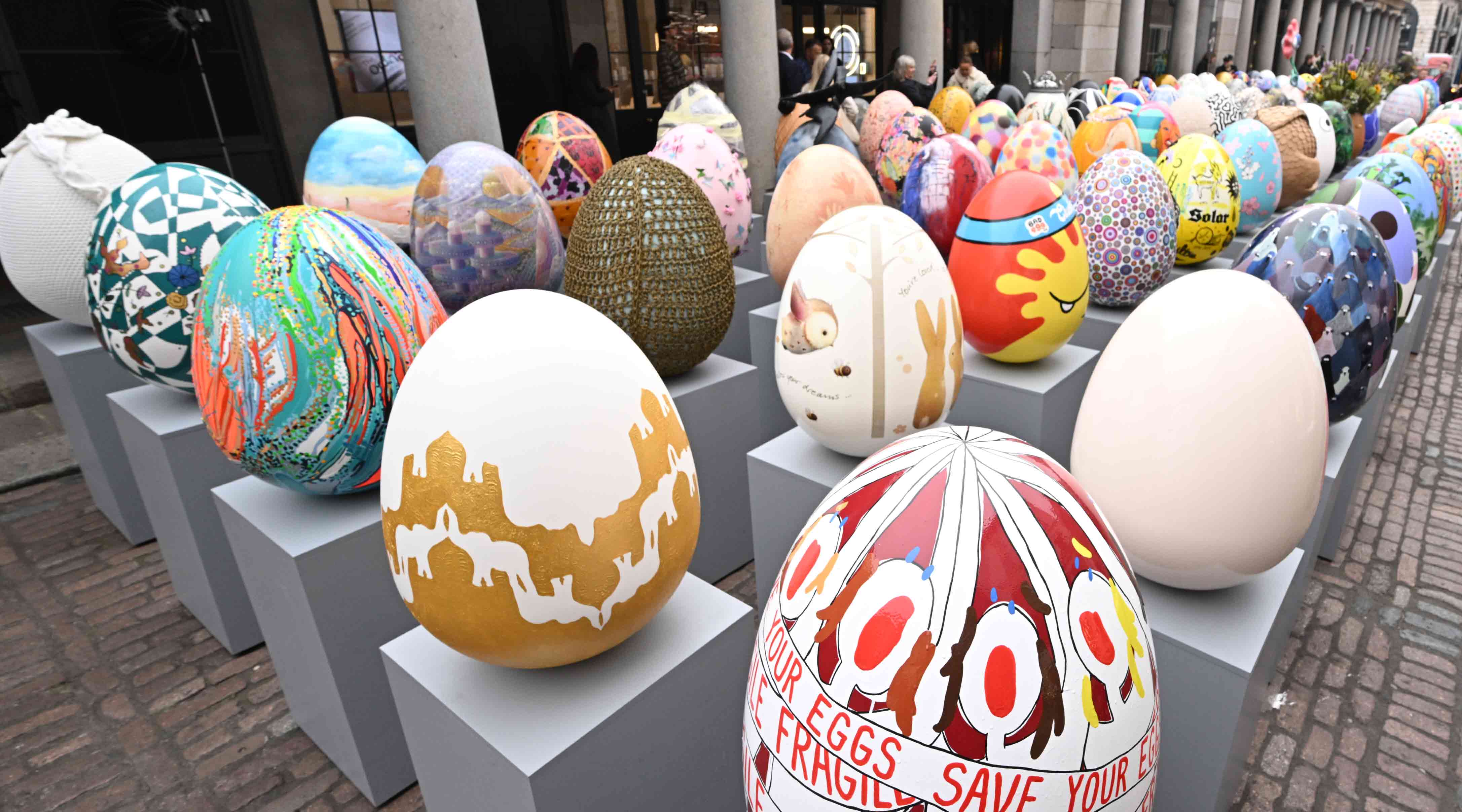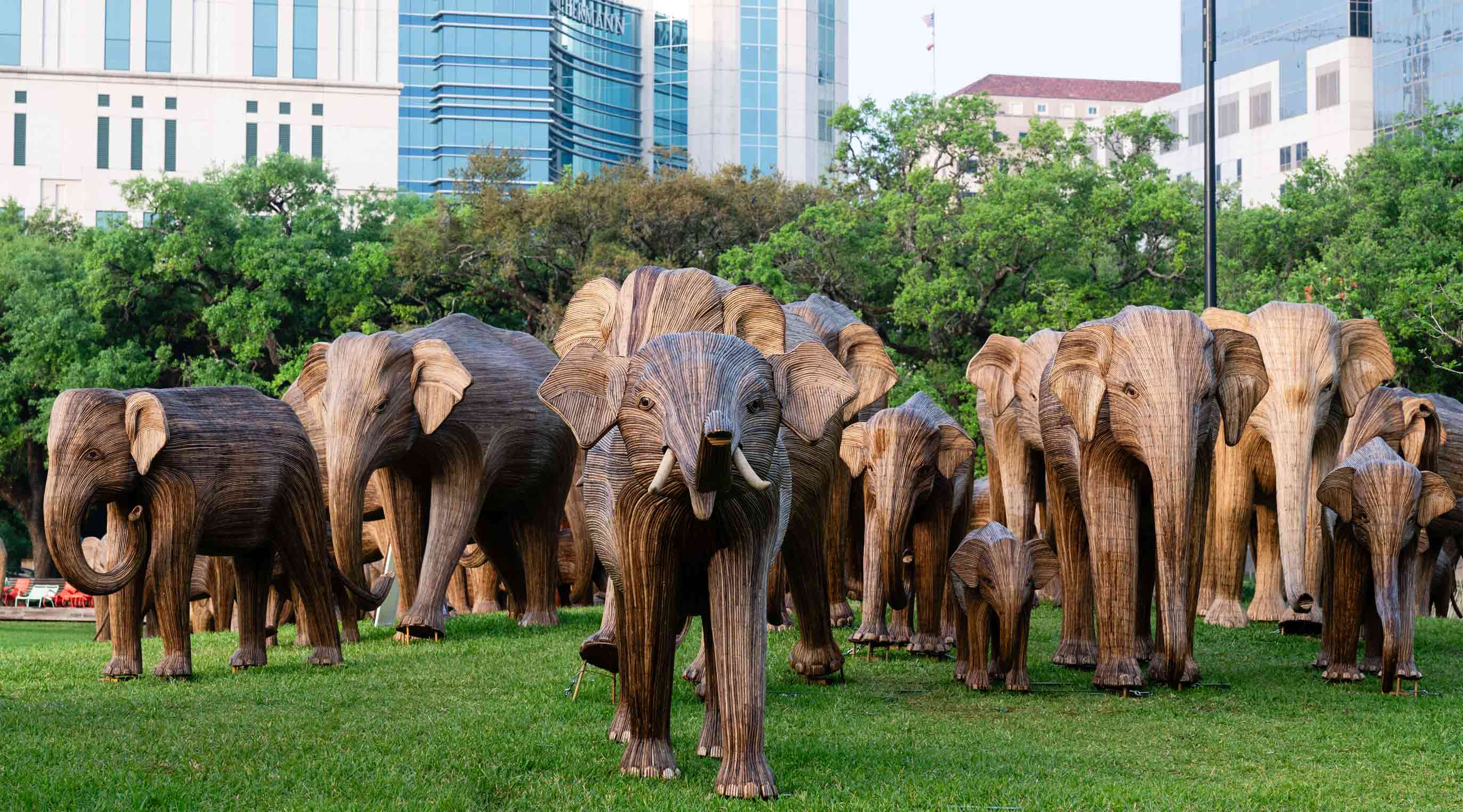Sheldrick Wildlife Trust is most famous for its elephant nursery in Nairobi, which LOVE BRAND & Co. has supported for over a decade. However, the charity is also engaged in numerous grassroots projects across Kenya. The 'Bee Propelled' print highlights bee projects and emphasises the significance of bees in the ecosystem and for the community.
"LOVE BRAND & Co. is very proud to continue to support Sheldrick Wildlife Trust. We have been raising funds and awareness for this very special charity in Kenya for over a decade and it is a great honour to continue to help fund their incredible work this year." - Oliver Tomalin, LOVE BRAND & Co. Founder
Sheldrick Wildlife Trust’s Beehive Initiative
In the heart of Kenya, a rising human population is putting pressure on available space and farming land. Leading to encroachment on wild habitats and protected areas, including the Tsavo National Park.
The south-western border of Tsavo East, was a vital elephant corridor and now finds itself home to over 50,000 people.
Human development has led to an increase in conflicts between people and elephants. These gentle giants, in search of food during dry seasons, often find the lush crops of local farmers irresistible. But for the farmers, these crops are a lifeline, crucial for their survival.
In this challenging landscape, a unique solution emerged to ultimately protect the two species from each other.
Enter elephant-beehive fences which harness the natural behaviour of bees to deter elephants from wandering into farms. First introduced by Dr Lucy King of Save the Elephants, the concept is as ingenious as it is simple.
The fence design involves a series of hives alternating with dummy hives suspended between posts and connected by wires. When an elephant brushes against the wire, the nearest hive's bees swarm, gently but effectively persuading the elephants to retreat.
The fences also offer multiple benefits for farmers including improved pollination of crops, farm protection against elephants, and income from the sale of the honey they harvest. And for the elephants, it means a safer environment free from human conflict.
Sheldrick Wildlife Trust launched its beehive fenceline project 10 years ago, in 2014, as a sustainable, non-aggressive method to mitigate human-wildlife conflict. Over the years, the charity has installed 144 hives on community farms that were historically targeted by crop-raiding elephants. Additionally, they have 78 beehives in the Kibwezi Forest and the Tsavo Farm, making a total of 222 beehives.
The bee fences have proved a huge success. Farmers often awake to find evidence of elephants approaching the fence, only to turn back, thwarted by the tiny guardians. Dr Lucy King reports an 80% success rate (out of every 10 attempts for elephants to get through these fences, only 2 are successful).
In 2021, the Sheldrick Wildlife Trust established a women’s beekeeping group in the lush Kibwezi Forest. This initiative not only strengthens the bond between local communities and conservation efforts but also provides valuable employment opportunities. Women from local communities are employed to care for 30 hives in the Kibwezi Forest. They are given a five-day training course and provided with professional beekeeping equipment.
Another unforeseen benefit is improved community relations. Farmers are now much more open to discussing illegal activities in the area which is good information for the Sheldrick Wildlife Trust’s anti-poaching teams and further protects all manner of wildlife.
A harmonious balance is struck: the farmers protect their livelihoods, and the elephants retain their freedom to roam with added protection.
Save the Bees!
Bees are essential for the survival of just about every living thing on the planet!
According to bee experts at the Food and Agriculture Organization (FAO) of the United Nations, a third of the world’s food production depends on bees. And not only this, bees provide high-quality food and resources themselves including honey, royal jelly, pollen and beeswax.
Aside from the above, bees are also the most common pollinators globally. They gather pollen from flowers and spread it around enabling plants, including vital food crops, to flourish and reproduce.
Unfortunately, bees are increasingly under threat from human activity. Global bee populations are declining as a result of factors including habitat loss, pesticides, air pollution and climate change.
This is why initiatives to help save the bees are more important than ever.
Bee Propelled
Sheldrick Wildlife Trust is very grateful for the continued support of LOVE BRAND & Co. Helping to raise valuable funds and awareness for our conservation efforts across Kenya, the 'Bee Propelled' print shines a spotlight on some of the smaller grassroots projects the Sheldrick Wildlife Trust is focused on, including the crucial role of bees in ecosystems and community engagement. - Rob Brandford, Executive Director Sheldrick Wildlife Trust
LOVE BRAND & Co. founder Oliver Tomalin, was inspired by the Sheldrick Wildlife Trust’s conservation project for our latest print ‘Bee Propelled’. The print sees bees looking like propellers in a mesmerising print of stone and deep blue.
Images courtesy of Sheldrick Wildlife Trust.







